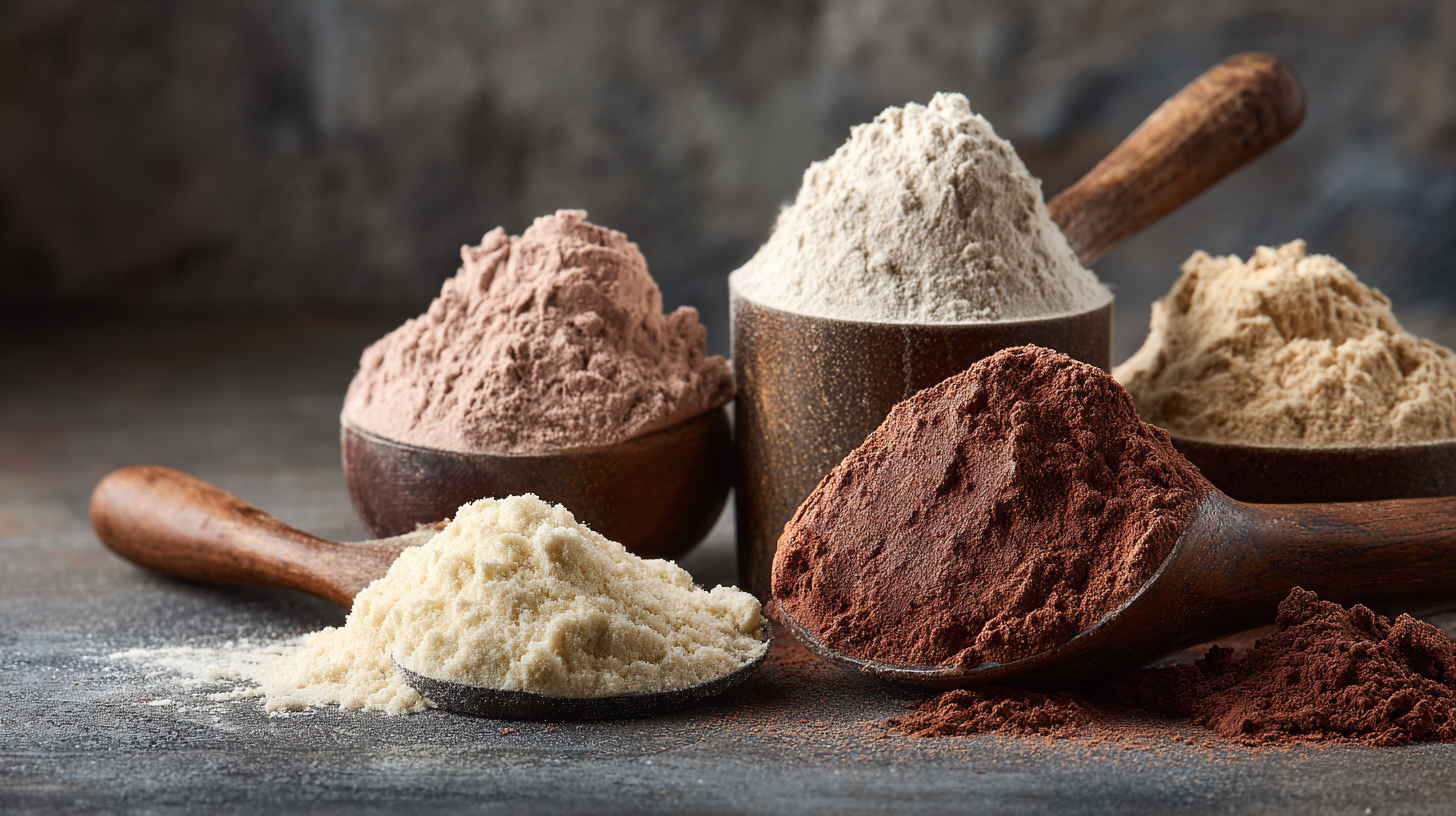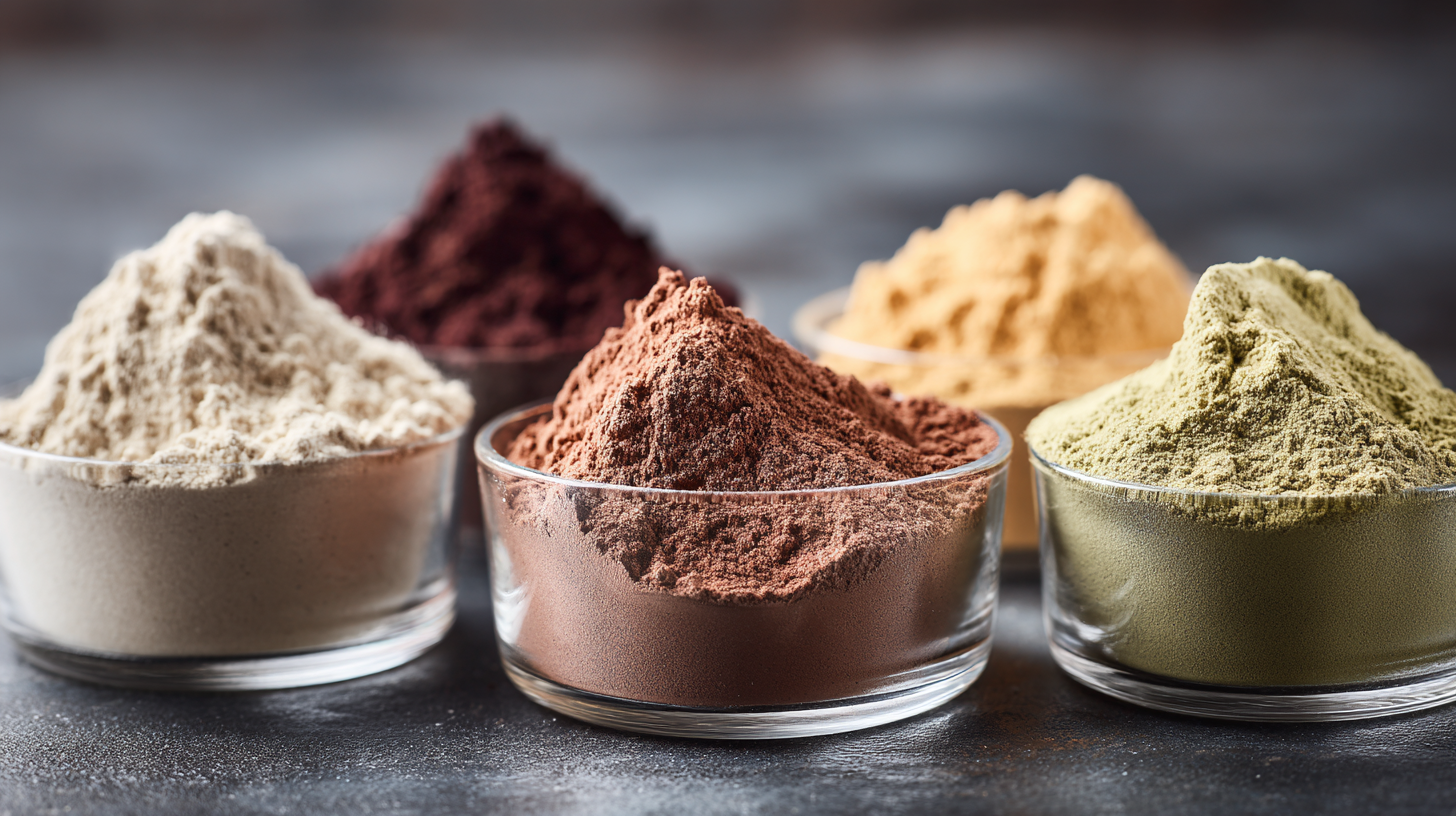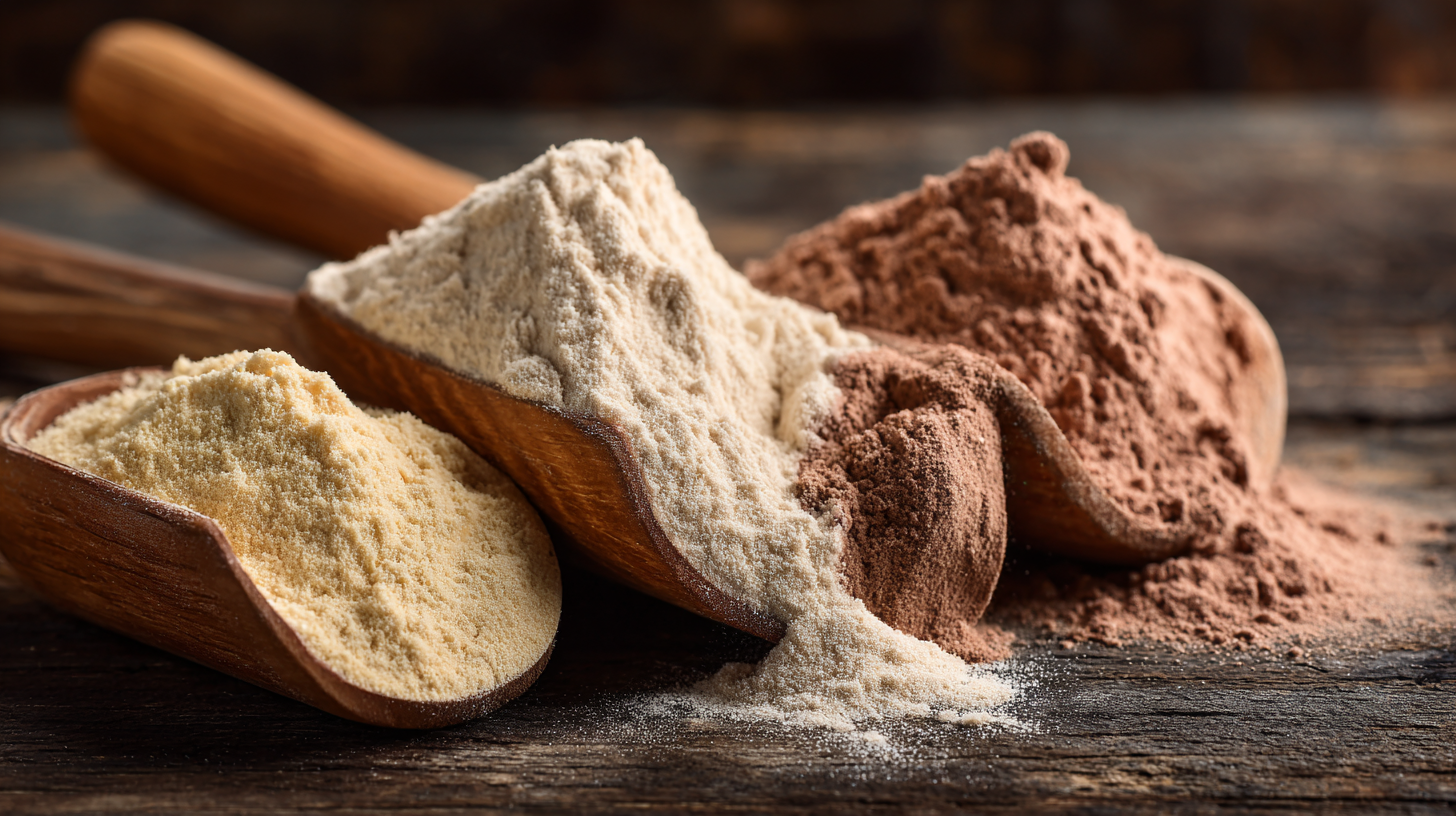The global protein powder market is projected to reach USD 24.11 billion by 2025, with a significant segment focusing on Protein Powder With Iron due to its essential role in promoting muscle growth and overall health. As the demand for dietary supplements rises, particularly among fitness enthusiasts and individuals seeking alternative sources of nutrition, the integration of iron in protein powders has garnered attention for its ability to combat iron-deficiency anemia and support optimal metabolic function. According to a recent industry report by Grand View Research, products enriched with minerals like iron are increasingly favored, particularly among plant-based protein sources, making it crucial for consumers to understand the variety of options available. This guide aims to explore the different types of protein powders containing iron, presenting a comprehensive checklist to assist you in choosing the best fit for your individual nutritional needs and lifestyle.

For fitness enthusiasts, protein powders with iron are essential supplements that aid in muscle recovery, support metabolic functions, and enhance overall stamina. Iron plays a crucial role in transporting oxygen in the blood, which can be particularly beneficial for those engaging in intense workouts. By choosing a protein powder enriched with iron, athletes can bolster their nutrition and ensure they are meeting their performance goals.
When selecting a protein powder, consider the source of protein. Options include whey, casein, and plant-based proteins, each offering unique benefits tailored to different dietary needs. For instance, whey protein is rapidly absorbed and ideal for post-workout recovery, while plant-based proteins are excellent for those with lactose intolerance or vegan preferences.
Tip: Always check the label for the iron content, as not all protein powders are fortified. Additionally, pay attention to the balance of macronutrients to ensure the powder aligns with your specific fitness goals. Consulting a nutritionist can also help you make informed decisions about which protein powder best fits your lifestyle and supports your training regimen.
When it comes to choosing a protein powder, understanding the different types is essential for meeting your nutritional needs. Whey protein, derived from milk during the cheese-making process, is a popular choice due to its rapid absorption and high biological value. This makes it ideal for post-workout recovery, as it helps replenish muscle protein quickly. On the other hand, casein protein, another milk-derived option, digests slowly, providing a sustained release of amino acids. This makes it well-suited for nighttime use, as it helps reduce muscle breakdown during sleep.
For those seeking plant-based alternatives, options like pea protein, rice protein, and hemp protein are excellent choices. Pea protein is rich in iron and a complete source of protein when combined with other plant proteins, making it a great option for vegetarians and vegans. Rice protein, although lower in certain essential amino acids, can also be a good choice, especially when mixed with other protein sources. Hemp protein, packed with omega-3 fatty acids, offers added nutritional benefits. By exploring these varieties, you can find the protein powder that best fits your dietary preferences and fitness goals.

When choosing the right protein powder based on dietary needs, it is essential to consider various factors, including nutritional content and specific dietary requirements. The global protein powder market is expected to grow from approximately $24.6 billion in 2024 to reach $46.2 billion by 2034, with a compound annual growth rate (CAGR) of 6.8%. This growth is driven by an increasing awareness of health and nutrition among consumers, highlighting the popularity of protein supplements as essential dietary additions.
As more individuals look to enhance their immune systems and overall health, protein sources such as egg protein powder, yeast protein, and plant-based proteins like canola are gaining traction. For instance, the canola protein market is projected to witness a CAGR of around 3.3% from 2024 to 2032, thanks to the rising demand for plant-based proteins. Additionally, the yeast protein, recently included in the new food ingredient directory by the health authority in China, represents a promising alternative for those seeking high-quality protein options that align with their dietary preferences and lifestyle choices. Choosing a protein powder that fits your specific nutritional needs is crucial for maximizing health benefits and achieving personal wellness goals.
| Type of Protein Powder | Iron Content (mg per serving) | Suitable For | Key Benefits |
|---|---|---|---|
| Whey Protein | 0.5 | General fitness, muscle building | Quick absorption, rich in essential amino acids |
| Soy Protein | 3.0 | Vegetarians, vegans | Complete protein, supports heart health |
| Pea Protein | 2.5 | Allergies to dairy or soy | Rich in iron, promotes satiety |
| Casein Protein | 0.3 | Overnight recovery | Slow digestion, sustained amino acid release |
| Brown Rice Protein | 0.4 | Gluten-sensitive individuals | Easy to digest, hypoallergenic |
| Hemp Protein | 1.0 | Plant-based diet | Rich in omega-3 fatty acids, nutritious |
Iron is an essential mineral that plays a vital role in various bodily functions, including oxygen transport, immune system support, and energy production. With growing awareness of nutritional needs, many consumers are looking into protein powders that are fortified with iron. According to the Institute of Medicine, adult men should aim for an adequate intake of 8 mg of iron daily, while women of childbearing age require about 18 mg, making the choice of protein powder with appropriate iron content crucial for meeting these dietary requirements.

Some protein powders specifically designed for athletes or those with higher iron needs offer enhanced formulations. For example, whey protein isolates generally contain around 0.3 mg of iron per 100 grams. In contrast, plant-based protein powders, such as pea protein, may provide 6 mg of iron per serving, which can be particularly beneficial for vegetarians and vegans, as highlighted by the American Journal of Clinical Nutrition. Incorporating iron-rich protein powders can help individuals not only boost their protein intake but also support their iron levels, contributing to overall health and well-being. As always, consulting a healthcare professional is advisable to tailor nutrition choices to individual health profiles.
Incorporating protein powders with iron into your daily nutrition routine can be both easy and beneficial. One effective strategy is to add protein powder to your morning smoothie. Blend your favorite fruits like bananas or berries with a scoop of protein powder, some spinach for added nutrients, and a dash of almond milk. This not only boosts your protein intake but also provides a delicious, energizing start to your day.
Another way to utilize protein powder is by mixing it into your snacks. For instance, you can create homemade protein bars by combining oats, nut butter, honey, and protein powder. This makes for a convenient on-the-go snack that helps stabilize energy levels throughout the day. Additionally, consider adding protein powder to your baked goods. Whether it’s muffins, pancakes, or cookies, substituting a portion of the flour with protein powder enhances their nutritional profile without sacrificing taste or texture. These simple adjustments can dramatically improve your protein intake while keeping your meals exciting and satisfying.
This chart compares various types of protein powders based on their iron content (in mg per serving). The bars represent the different types of protein powders available, helping you to choose the best fit for your nutritional needs.
